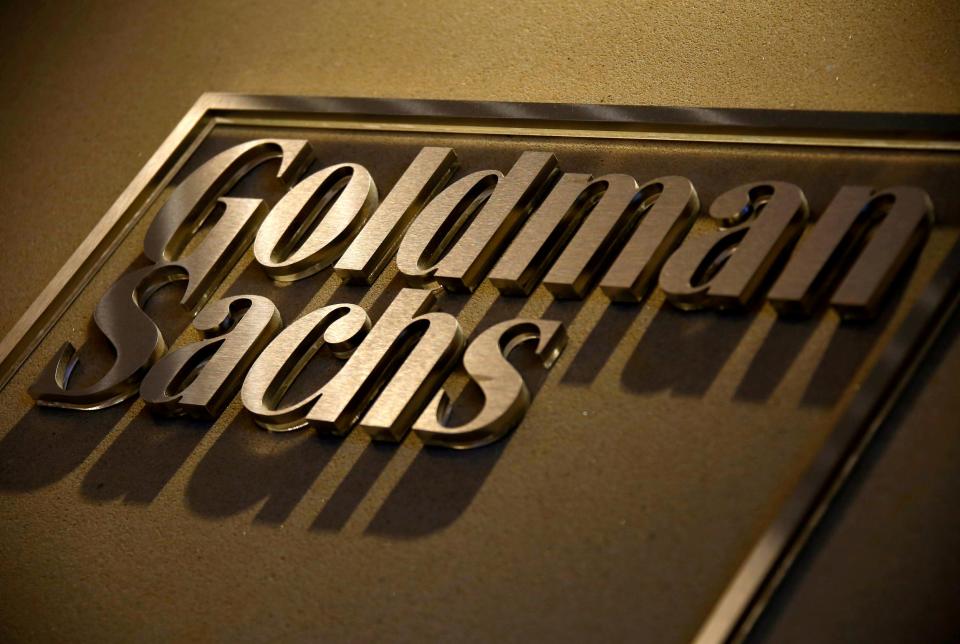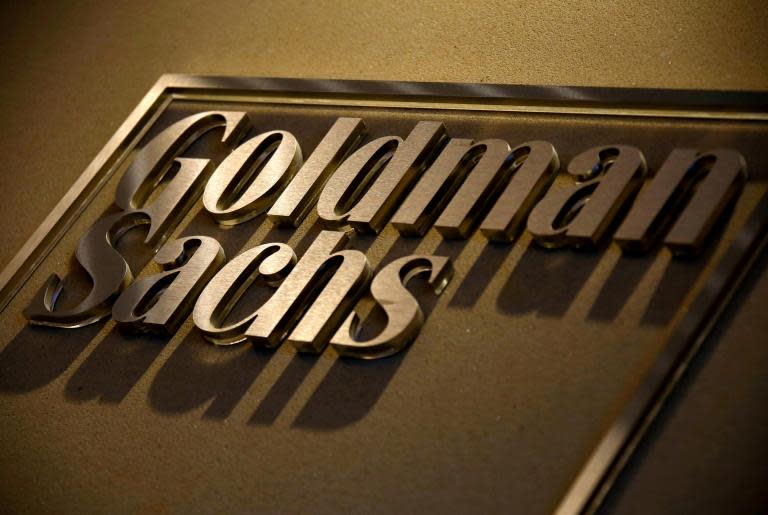Is Goldman Sachs really Britain's new savings superstar with its 'Marcus' account?
If you thought things couldn’t get any weirder, how about this: Goldman Sachs is getting cheered from the rooftops for giving money away.
This, remember, is an investment bank that was memorably once described as “a great vampire squid wrapped around the face of humanity, relentlessly jamming its blood funnel into anything that smells like money”.
But today it has formally launched ‘Marcus’, a savings bank offering a market leading interest rate of 1.5 per cent, in the UK
To get that you have to give Goldman’s your money, so saying it’s giving money away isn’t entirely accurate.
That said, while 1.5 per cent might not sound like much, and is well below the current rate of inflation, it is still three times the average rate paid by existing savings accounts, and enough to vault the new venture to the top of the best buy charts. Hence the cheering from the sadly limited number of people in Theresa May’s Britain that have sufficient spare cash to salt some away.
Another point in the account’s favour is that it is a truly mass market product, available to anyone aged 18 and above with a minimum deposit of just £1.
Sing it loud, sing it proud: Let’s go Goldman’s! Or should that be: Let’s go Marcus!
“There is a real disillusionment about savings,” said Marcus MD Des McDaid. “We want to reverse the trend - literally putting the interest back into savings and make saving worthwhile again.”
Get you to Saville Row to have a pair of underpants fitted that you can wear above your suit Des! You’re the new savings Superman!
“More competition in the savings market is sorely needed,” said Laura Suter, personal finance analyst at investment platform in response.
Just how true that statement is can been seen if you consider one of the numbers put out by Lloyds Banking Group, the UK’s biggest retail bank.
Net interest margin is, in simple, terms the difference between what borrowers pay and what savers are paid. At Lloyds it hit a low of 1.91 per cent in the second quarter of 2012. In the early part of 2018, however, it had improved to a balmy 2.93 per cent.
Now the number encompasses all of the various ways Lloyds funds its various lending activities (so corporate deposits, current accounts, wholesale funding etc). It isn’t limited to retail savings accounts and loans.
But you don’t get to juice your margins like that when you’re operating in a vibrantly competitive savings market.
So yay Goldman. Up to a point. Because you won't be surprised to learn that, this being banking, there is a catch.
For a start, as Suter points out, the account pays just 0.09 per cent more than current table-topper Yorkshire Building Society, good for an extra 90p a year for someone with £1,000 on deposit. Some people might think it’s worth giving that up to save with a building society they own a piece of in preference to Goldman.
The rate is also variable and includes “a 12 month bonus rate of 0.15 per cent” without which it would be below the Yorkshire.
Standard practice in banking is to offer a sexy - alright that’s probably not an idea choice of adjective for 1.5 per cent but forgive me - teaser rate to start with before turning off the taps when the money’s in. That’s particularly true for new ventures in need of publicity to bring in business.
So perhaps savers should put their cheers on hold until we see how long Marcus maintains its position at the top of those best buy tables.

 Yahoo Finance
Yahoo Finance 

